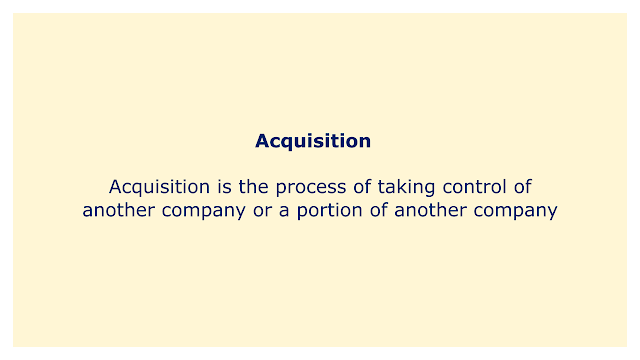 |
| Image: Moneybestpal.com |
In the financial industry, the process of taking control of another company or a portion of another company is referred to as an "acquisition." Acquisitions are a frequent tactic employed by businesses to develop their operations, broaden their consumer base, or get access to new technology, clients, or other resources.
Mergers, takeovers, and asset purchases are just a few ways to buy a firm. In a merger, two businesses come together to form one, maintaining their individual legal identities while working as one. A takeover is when one business takes over another, usually by buying the majority of the latter's existing shares. In an asset purchase, a business buys the assets of another business—such as its customers, intellectual property, or tangible assets—while keeping the liabilities of the purchased business.
A detailed analysis of the target company's financial and operational qualities is required as part of the sometimes complicated acquisition process. Due diligence is a thorough analysis of the target company's financial, operational, and legal aspects that businesses normally do to evaluate the potential risks and advantages of acquisitions.
An assessment of the target company's financial statements, contracts, intellectual property, and other assets, as well as a look at its liabilities, legal commitments, and tax ramifications, may all be included in the due diligence process.
The cost of acquiring a company might be paid in cash, new shares being issued, debt being assumed, or a mix of these. The scale of the acquisition, the financial standing of the acquiring company, and the anticipated return on investment are just a few of the variables that affect how an acquisition is financed.
